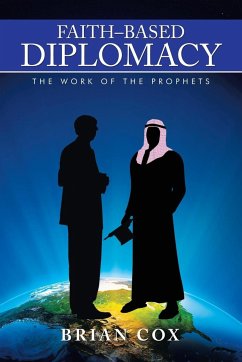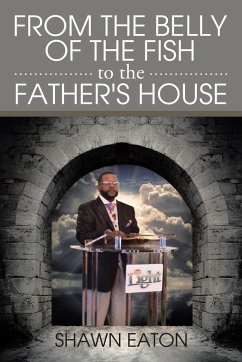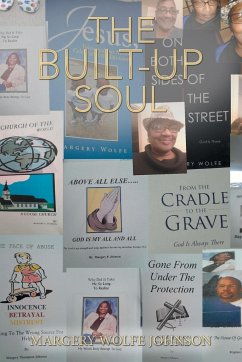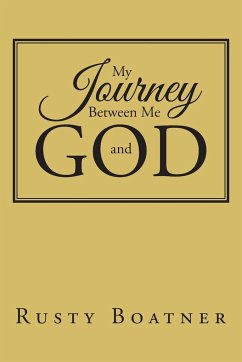18,99 €
inkl. MwSt.
Versandfertig in 1-2 Wochen

9 °P sammeln
- Broschiertes Buch
Andere Kunden interessierten sich auch für
![Scripture-Based Answers to Some GOSPEL WHYS Scripture-Based Answers to Some GOSPEL WHYS]() Kelly G. JonesScripture-Based Answers to Some GOSPEL WHYS10,99 €
Kelly G. JonesScripture-Based Answers to Some GOSPEL WHYS10,99 €![Jesus and Mary's Plant-based Diet Impacting Climate Change Jesus and Mary's Plant-based Diet Impacting Climate Change]() James C. TibbettsJesus and Mary's Plant-based Diet Impacting Climate Change15,99 €
James C. TibbettsJesus and Mary's Plant-based Diet Impacting Climate Change15,99 €![WHAT WOULD JESUS DO ABOUT DOMESTIC VIOLENCE AND ABUSE TOWARDS CHRISTIAN WOMEN? - A Biblical and Research-based Exploration for Church Leaders, Counselors, Church Members, and Victims WHAT WOULD JESUS DO ABOUT DOMESTIC VIOLENCE AND ABUSE TOWARDS CHRISTIAN WOMEN? - A Biblical and Research-based Exploration for Church Leaders, Counselors, Church Members, and Victims]() Chloe CummingsWHAT WOULD JESUS DO ABOUT DOMESTIC VIOLENCE AND ABUSE TOWARDS CHRISTIAN WOMEN? - A Biblical and Research-based Exploration for Church Leaders, Counselors, Church Members, and Victims33,99 €
Chloe CummingsWHAT WOULD JESUS DO ABOUT DOMESTIC VIOLENCE AND ABUSE TOWARDS CHRISTIAN WOMEN? - A Biblical and Research-based Exploration for Church Leaders, Counselors, Church Members, and Victims33,99 €![From the Belly of the Fish to the Father's House From the Belly of the Fish to the Father's House]() Shawn EatonFrom the Belly of the Fish to the Father's House14,99 €
Shawn EatonFrom the Belly of the Fish to the Father's House14,99 €![The Built-Up Soul The Built-Up Soul]() Margery Wolfe JohnsonThe Built-Up Soul22,99 €
Margery Wolfe JohnsonThe Built-Up Soul22,99 €![My Journey Between Me and GOD My Journey Between Me and GOD]() Rusty BoatnerMy Journey Between Me and GOD15,99 €
Rusty BoatnerMy Journey Between Me and GOD15,99 €![Genesis, the Origin of the Beginnings Genesis, the Origin of the Beginnings]() Fitzalbert M. MariusGenesis, the Origin of the Beginnings23,99 €
Fitzalbert M. MariusGenesis, the Origin of the Beginnings23,99 €-
-
-
Produktdetails
- Verlag: Xlibris
- Seitenzahl: 394
- Erscheinungstermin: 28. Mai 2015
- Englisch
- Abmessung: 229mm x 152mm x 23mm
- Gewicht: 638g
- ISBN-13: 9781503550926
- ISBN-10: 1503550923
- Artikelnr.: 42989594
Hinweis: Dieser Artikel kann nur an eine deutsche Lieferadresse ausgeliefert werden.
- Herstellerkennzeichnung
- Libri GmbH
- Europaallee 1
- 36244 Bad Hersfeld
- gpsr@libri.de
The Reverend Canon Brian Cox Canon Brian Cox is an ordained Episcopal priest and a trained professional in conflict resolution who serves as a pastor, as a senior official of a Washington DC-based nongovernmental organization, and as a director of an academic program devoted to faith-based diplomacy. He was born in Chicago, Illinois. He received his BS in Geological Sciences at the University of Southern California in Los Angeles, California, and his Master of Divinity degree from the Episcopal Divinity School in Cambridge, Massachusetts. He received a Master of Dispute Resolution degree from Pepperdine University School of Law in Malibu, California. He was ordained an Episcopal priest in 1975. He has served congregations in Southern California and Northern Virginia. At the present time, he serves as rector of Christ the King Episcopal Church in Santa Barbara, California. He has been a leader in the work of faith-based reconciliation on a local, regional, and national context in the Episcopal Church. His involvement with international affairs began in 1984 when he spent several months in South Africa under the auspices of Africa Enterprise and the Anglican Diocese of Pretoria. In 1985, he founded and became the first US Director of Sharing of Ministries Abroad (SOMA), which was involved in conducting spiritual renewal conferences for leaders of the Anglican Communion in Africa, Asia, Latin America, and the Middle East. In 1990, he founded the European Reconciliation Fellowship, which focused on the work of faith-based reconciliation with political and religious leaders in East Central Europe-particularly the Czech Republic, Slovakia, Hungary, Romania, Serbia, Croatia, Bosnia, and Kosovo. It was in East Central Europe that he began to develop the strategic paradigm of faith-based reconciliation, which is defined by eight core values and by a deliberative process of constructive joint problem-solving. In 1996, he founded the Reconciliation Institute in Santa Barbara, California, and developed the faith-based reconciliation process as a religious framework for peacemaking in intractable identity-based conflicts. As such, he sought to apply the principles and skills of faith-based reconciliation to his own community, which included initiatives concerned with racial reconciliation, Jewish/Christian reconciliation, and civic reconciliation. In 1999, he joined a newly formed nongovernmental organization called the International Center for Religion and Diplomacy and later became ICRD's senior vice president. The mission of the International Center for Religion and Diplomacy is to address problems of communal identity that exceed the grasp of traditional diplomacy (such as ethnic conflict, tribal warfare, and religious hostilities) by effectively combining religious concerns with the practice of international politics. As such, it is committed to faith-based diplomacy. He has served as ICRD's project leader for Kashmir and the Middle East. In Kashmir, he worked on both the Indian and Pakistani sides of the Line of Control. His groundbreaking work created a public conversation in Kashmir about reconciliation as part of its future, created movement in the stalemate between Kashmiri Muslims and Hindu Pandits, and led to an important bridgebuilding meeting between top Pakistani Kashmiri Muslim leaders and Indian Pandit (Panum Kashmir) leaders in Nepal in 2005. In the Middle East, he has been or is currently involved with four project tracks: working with Syrian opposition leaders toward national healing and the creation of a pluralistic community in the region consisting of Syriac Christians, Kurds, and Arab Bedouins; empowering young Palestinian Christian and Muslim leaders in the West Bank to create a forward-looking people movement based on healing, transformation, and nonviolence; engaging with Israeli leaders in creating a Jerusalem-based entity that offers a faith-based alternative to enable enemies to sit together under a different architecture to solve their problems with each other; and building a bridge with Muslim Brotherhood leaders in Jordan to create an opportunity for Islamists in the region to consider the role of peacemaking and reconciliation. In 2001, he joined the faculty of the Straus Institute of Pepperdine University Law School in Malibu, California, as an adjunct professor. He presently serves as director of the PACIS Project in Faith-Based Diplomacy and continues teaching master's-level courses. He has been a pioneer and practitioner in integrating faith and politics in the international context. Over the course of his work in Africa, Asia, Europe, Latin America, and the Middle East, he has developed the strategic paradigm of faith-based reconciliation as a fresh approach to larger scale political conflict, as a religious framework for peacemaking and conflict resolution, and as an alternative to religious extremism. Besides his experience in some of the world's roughest neighborhoods, he has contributed to the scholarly and conceptual development of faith-based reconciliation with journal articles and opinion pieces. In 2007, his book Faith-Based Reconciliation: A Moral Vision that Transforms People and Societies was published by Xlibris Publishing. In 2008, he published three versions of the Reconciliation Basic Seminar. In 2011, his book Faith-Based Reconciliation: A Religious Framework for Peacemaking and Conflict Resolution was published by Xlibris Publishing. You can visit the website at www.faith-basedreconciliation.com. He and his wife, Ann, live in Santa Barbara, California, and have two grown and married children and three grandchildren.







